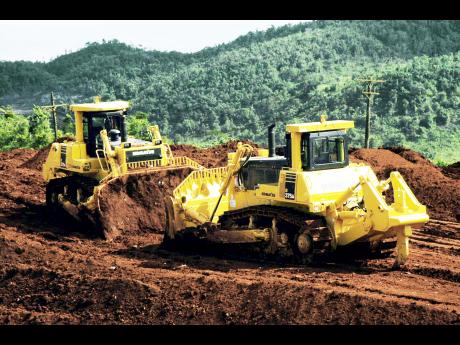Ronald Thwaites | ‘When the facts change ...’
That was John Maynard Keynes, perhaps the greatest economist of the last century: "When the facts change, I change my mind. What do you do, Sir."
This quote was running through my mind last Tuesday as the House of Representatives approved the latest transfer of more than $200 million from the Capital Development Fund (CDF), the financial vessel which was established to guard the money from bauxite extraction.
Over 40 years, we have used some US$2.5 billion for various projects, depleting the capital we earned from the scraping off of our topsoil, the destruction of peasant culture and the depletion of agricultural output. Has it been worth it? That is the question we are afraid to confront.
The answer to that will lay bare the good sense or folly of many decisions of the independence enterprise. You have to be humble, and probably penitent, to acknowledge that, fearful to face the facts of our needlessly under-productive economy, we have eaten out the capital till now it is nearly finished.
It is the bauxite money, garnered at such a cruelly high price, which has allowed the country to retain and, even now, worsen our addiction to unaffordably expensive oil while failing to carry out the transformation of our export and other productive sectors.
The nation should watch again and again the brilliant presentation, complete with pictures which don't lie, by Michael Stewart, member of parliament, of the unrequited destruction of south Manchester by the mining industry. It was coincidental that his motion was taken just after this latest raid on the CDF.
He told the story of land scraped to the hard pan but never reclaimed as required by law; of communities fractured by the bauxite land grab; miserable relocation from family land to uncertain tenant farming; the breakup extended families; the inevitable migration and the social disorder which we stupidly think police repression can solve. Stewart's doleful narrative could apply to many other constituencies.
No benefit to the ordinary J'can
Nigel Clarke was at pains to remind the House of the positive contribution of mining to the economy: the tax, the nearly 4,000 jobs and, shamefully, one-third of our exports. He seemed defensive. As protector of the Treasury, I suppose he has to be. But what long-term benefit has the ordinary Jamaican got from the industry when you compare the short- and medium-term gains with the enduring destruction? What is the purpose of economy after all, if not the long-term good of the greatest majority?
So we voted to transfer the money, fully aware that there isn't much left; that there won't be much more either, since the new arrangements made by this Government with mining companies are to expect a share of their profits rather than exact a levy.
Free education, when it existed, and many new schools were afforded by the virement of funds from the CDF. Nobody is claiming that the entirety has been used imprudently. But going forward, we have to carry out a proper cost-benefit analysis as to how we have handled this very important sector. And since it is asserted that there is as much bauxite still to be mined as we have extracted up to now, it is urgent that we determine Jamaica's best options.
The facts upon which the industry was premised have changed. Are we informed enough and wise enough to change our minds if necessary?
But wait! Isn't the same kind of choice facing the cane and sugar industry, the coffee and spice sectors, and yes, even tourism, given the dismal levels of retention from our largest market, all as recorded recently by the Statistical Institute?
This call then is for transparency and realism in Parliament and the public sphere about the Jamaican economy. Here are some examples: it is great to hear of many new jobs being created, but why have so many people apparently left the labour force? And how come there are more employed and more working poor at the same time?
And while there is relief at the news of new players among coffee buyers - $4,000 per box for Blue Mountain cherry will produce poverty, not prosperity, in the sector. Lastly, speaking to a group of esteemed high-school principals recently, they tell of the cutback in programmes for enrichment in their schools due to the decline in parental contributions. There has been no additional money from the Government to make up for what has been lost by misguided policy; and guess who are the losers?
When your facts are outdated or just plain wrong, you have to change your mind or the rest of us will suffer from your stubbornness.
- Ronald Thwaites is member of parliament for Kingston Central and opposition spokesman on education and training. Email feedback to columns@gleanerjm.com.

